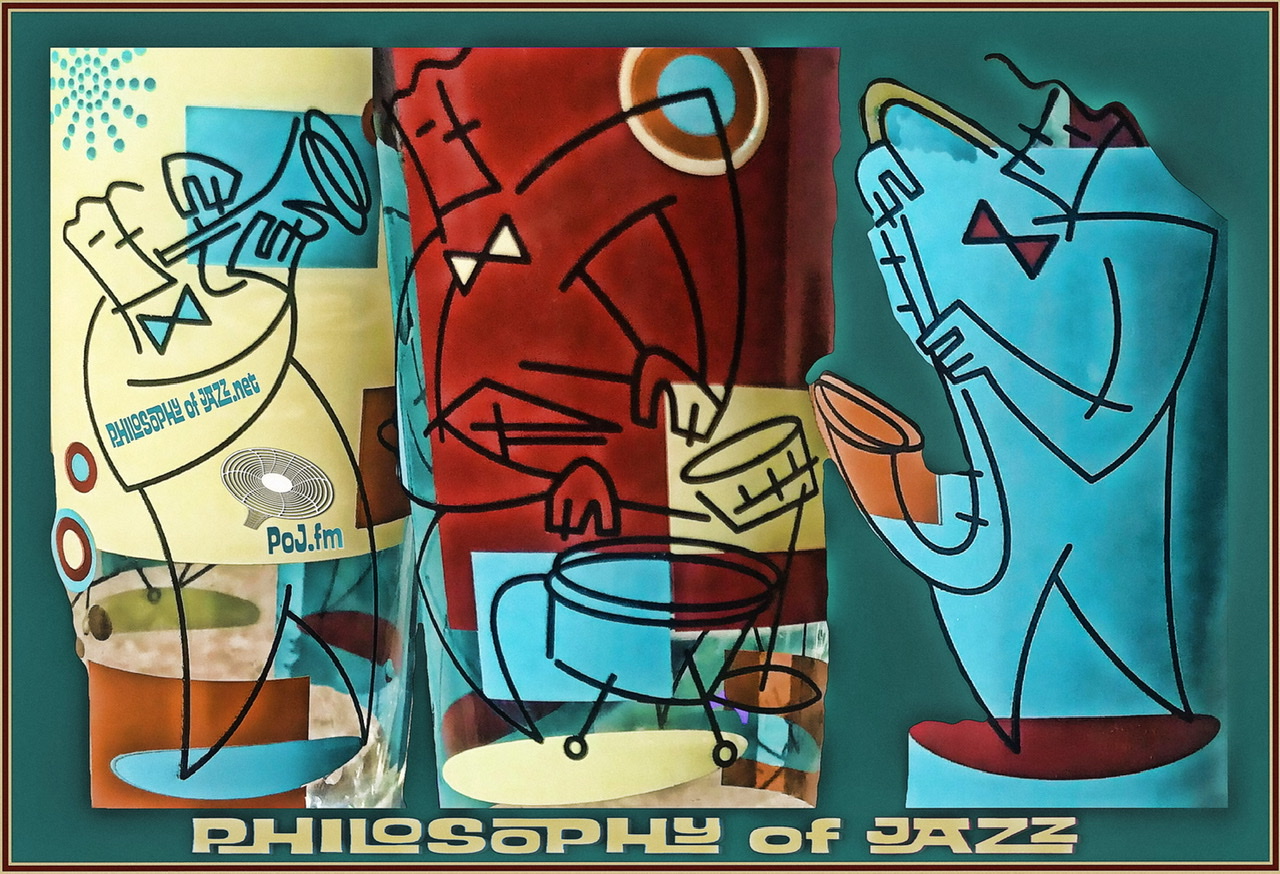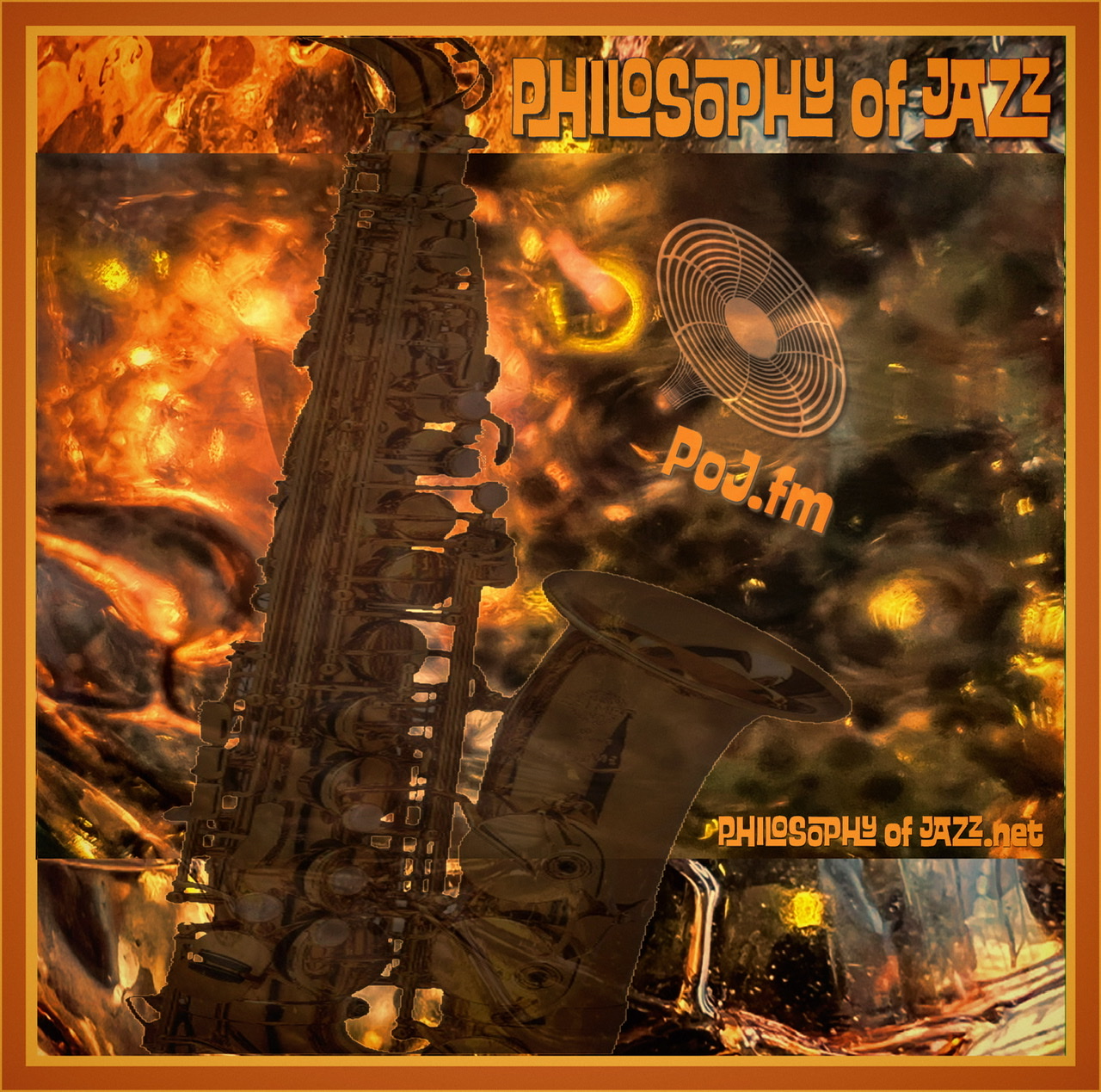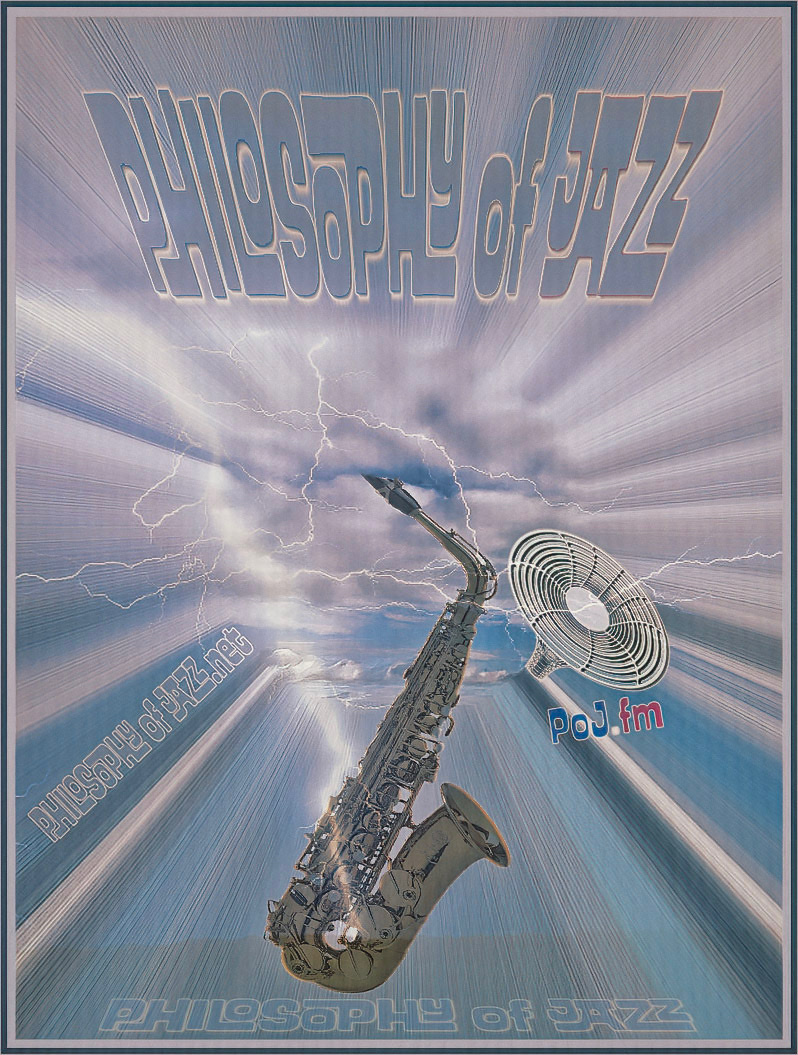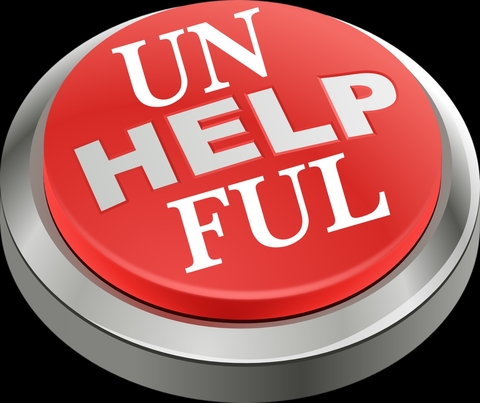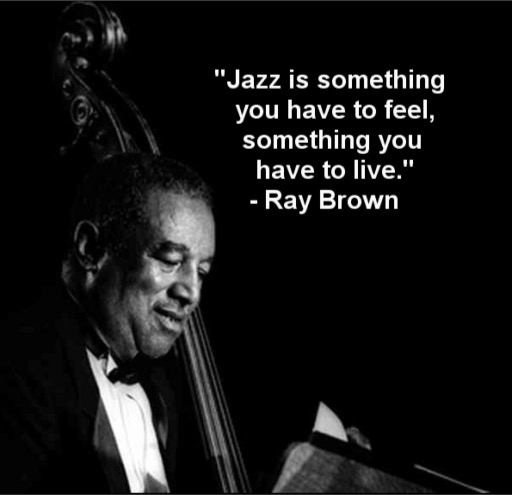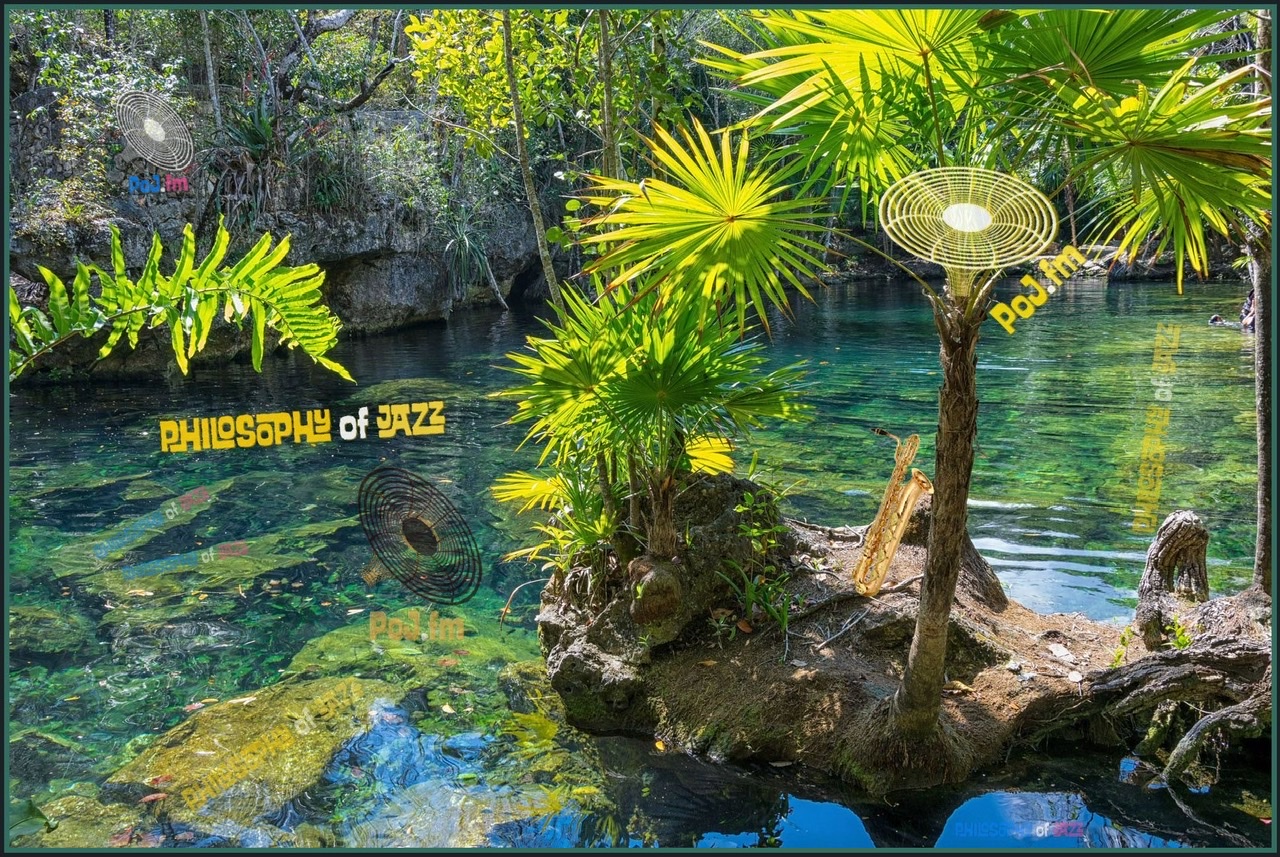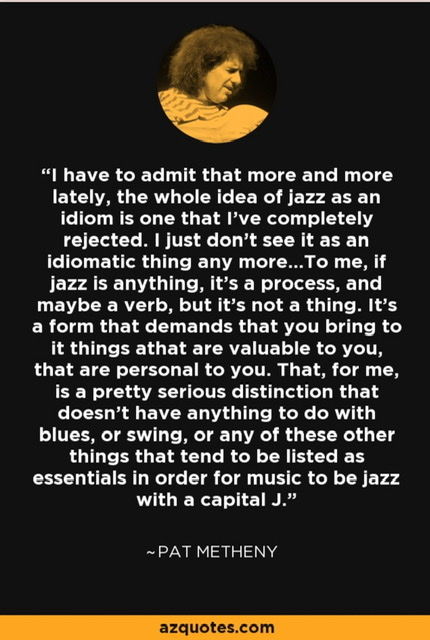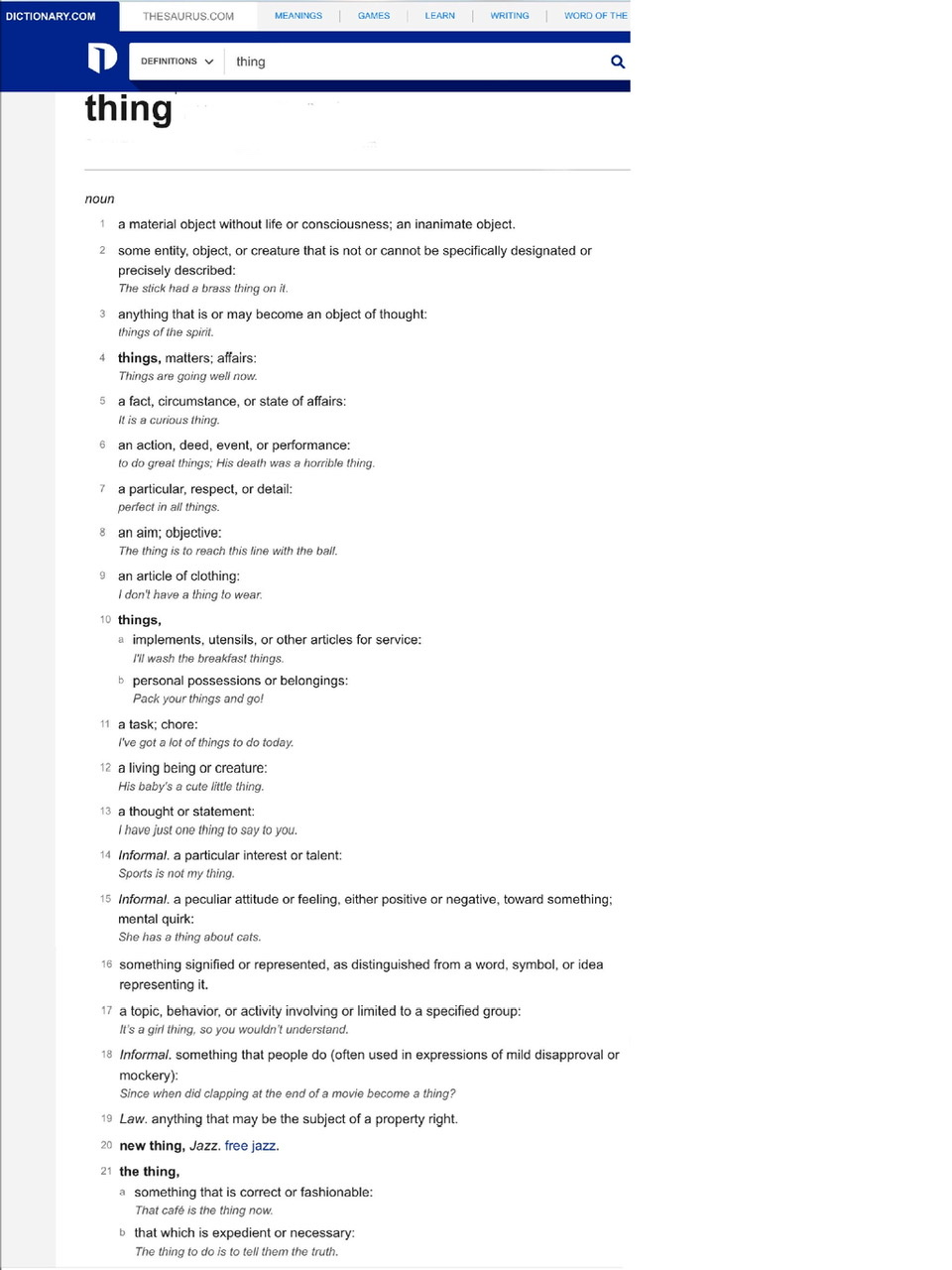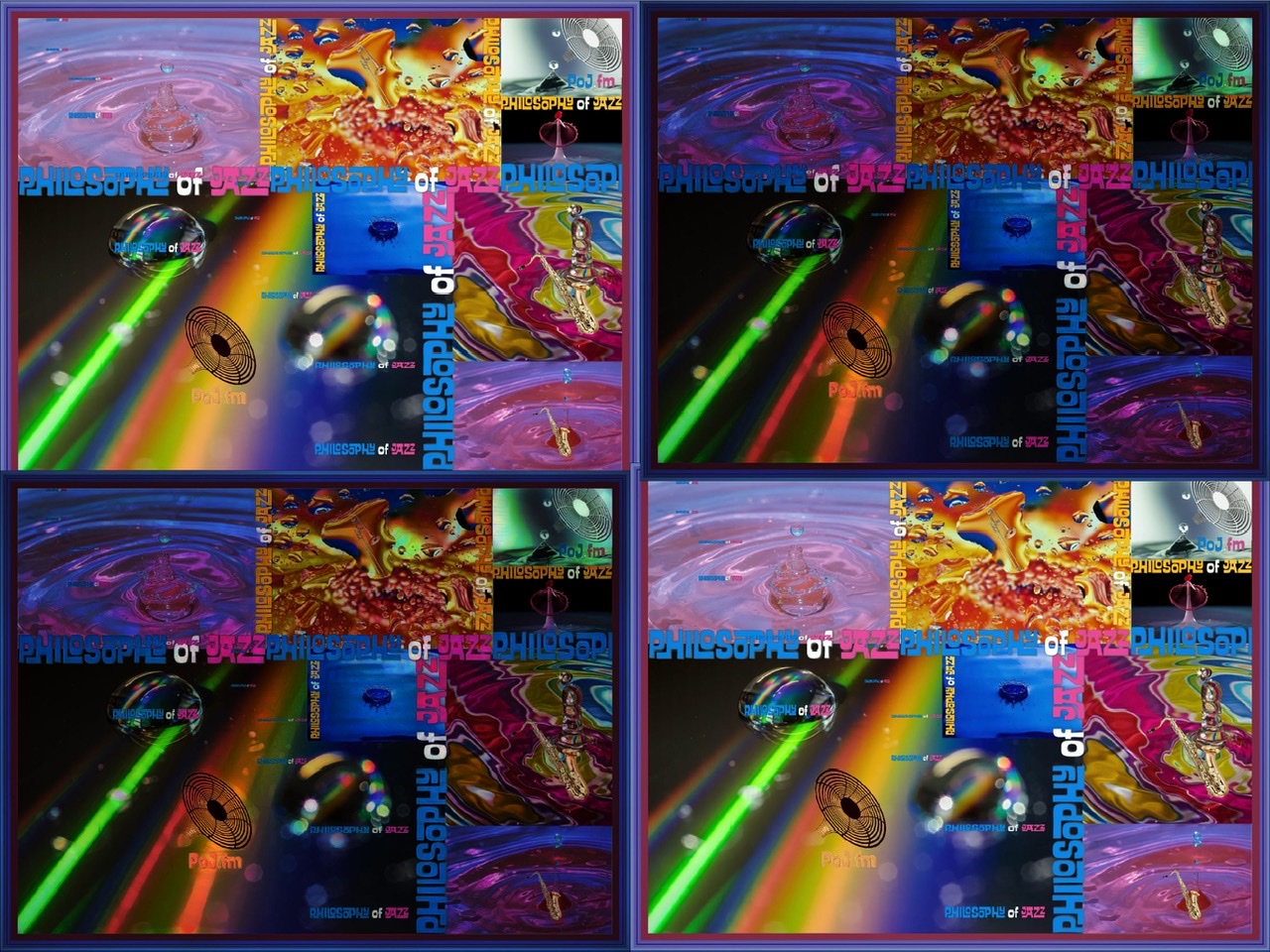Ontdef4. Unhelpful definitions of jazz
Contents
- 1 Introduction and Orientation
- 2 Trouble with Elements of Jazz
- 3 Problems with Too General or Too Broad Definitions of Jazz
- 4 Survey of Failed Definitions for Jazz
Introduction and Orientation
Many people have said things about jazz that often are somewhat true, but essentially entirely unhelpful as any sort of definition of jazz. The reasons why these suggestions for a definition are typically unhelpful is that the proposed definition does not end up picking out all and only jazz performances.
Trouble with Elements of Jazz
Preliminaries for Proving Swing is Not an "Element of Jazz"
Ultimately, there is an objection to the claim that Western Swing incorporated "elements of jazz" into its musical universe.
To understand why, ask yourself if red is an element of apples? The answer is technically that red cannot be an element of apples if by this is meant that somehow redness is constitutive of those components that constitute all and only apples or what makes an apple be an apple. Since Granny Smith apples 🍏 are green, yet remain genuine and entirely legitimate actual apples, it cannot be that redness is an element that names something required or needed by apples. Redness is an accidental feature of being an apple 🍎. It may be true, although there seems no genetic or biological reason why it needs to be so, that a more specific sub-type of apple, namely McIntosh apples, may be required to be red and green 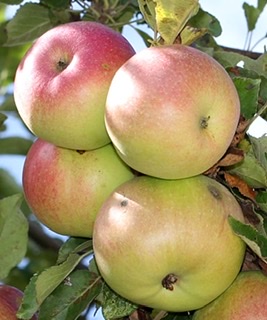 to be named a McIntosh style of apple.
to be named a McIntosh style of apple.
Jazz is more like the generic apple than it is of a sub-species such as McIntosh apples. The reason for this is that subtypes of jazz—such as modal jazz, cool jazz, or swing big band jazz—are sub-types of the Big Apple itself—Jazz.
The significance of the above point is that swing is NOT an element of jazz in and of itself. Swing is neither necessary for music to be jazz nor is it sufficient for music to qualify as jazz just like redness is neither necessary nor sufficient for something to be an apple. See Ontdef3. What are not sufficient conditions for playing jazz?
Just like redness is not an element of being an apple with respect to applehood, so swing is not an element of jazzhood since jazz without swing exists (e.g., Latin jazz and free jazz) and music exists that swings, but isn't jazz (e.g., Western Swing or Rockabilly).
When proposing to define jazz, one seeks out whether there is any such thing as jazzhood and this is the overarching genus and not identical to any of its own sub-types (of jazz), such as only considering big band swing music as constitutive of all of jazz. That would be like claiming to know about all apples by only studying about Mcintosh varieties of apples. If someone wants to know about apples they don't just study Mcintosh apples and then conclude that all apples are necessarily red or that any green fruit 🥝, like a Granny Smith apple, cannot be an apple.
Similarly, one should not only study big band swing music to know about all of jazz, or conclude that Latin Jazz cannot be jazz since it doesn't swing.
At Quora.com author Kevin Frey, Director of Student Development and Campus Life at Berkeley College, Woodbridge campus, New Jersey with a Master of Arts in Research and Jazz History from Rutgers University and a Bachelor of Fine Arts in Jazz and Contemporary Music Performance from The New School University in New York City, responds to the question "Is there any music that does not 'swing', but is still considered jazz?" by arguing that jazz exists in various forms without needing to use a swing feel in the rhythm as it evolved.
“Jazz doesn't need to swing in the traditional sense. John Coltrane didn't "swing" for the latter part of his career. Listen to "Meditations." Miles Davis stopped playing with a swing feeling even before "Bitches Brew," but especially from that record on. Groups like Mahavishnu Orchestra, Return to Forever, even Weather Report didn't swing in the traditional sense. Ornette Coleman from "Free Jazz" on. All the Headhunters stuff by Herbie Hancock, and the Mwandishi band before that. When jazz developed the "swing" feel was what was popular and happening. But jazz evolved and incorporated many other musical styles from around the world. Many didn't swing in the sense that they had a walking bass line, "spang-a-lang" in the cymbals and a triplet feel. Just because something doesn't swing like Basie or Goodman or Ellington doesn't mean it's not jazz. If the art form didn't change and evolve it would be dead.” (bold not in original)
PROOF: Swing is Not an Essential Element of Jazz
Why would anyone claim that swing is an element of jazz in the first place? Well, some jazz music does swing so for swinging big band tunes swing is an aspect of this kind of jazz, and so, it is an element contained within this sub-type.
Still, jazz exists without having swinging rhythmic time-keeping so in a non-swinging form of jazz, such as Latin jazz, swing is not an element of non-swinging jazz yet doesn't disqualify it from remaining jazz. Because jazz exists without swing, swing cannot be an element constitutive of jazz itself.
Swing can be a part of jazz in the same sense that tuxedoes can be part of jazz since often in the past jazz performers have played with tuxedoes or used swing. It doesn't follow from such previous and past associations that tuxedoes are an element of jazz in the sense of being constitutive of jazz itself.
This last claim is known to be false because jazz can be played without requiring or using tuxedoes (or swing for that matter), so tuxedoes are not constitutive of jazz itself, and so tuxedoes should not be claimed to be elements of jazz even though jazz performers (e.g., Modern Jazz Quartet, or Duke Ellington) have sometimes used them during jazz performances.
Problems with Too General or Too Broad Definitions of Jazz
Apparently because of the scarcity of an accepted musically oriented definition for jazz, authors often resort to using a broad brush to delineate jazz as a form of music. Here is one such attempt at Wikipedia: jazz.
“Jazz is a genre of music that originated in African American communities in the United States in the late 19th and early 20th century. It emerged in the form of independent popular musical styles, all linked by the common bonds of African American and European American musical parentage with a performance orientation.” (bold not in original)
The big problem is that this definition would work for describing the form of music known as the blues! Even if blues music did not exist, this Wikipedia description tells us so little about what kind of music jazz consists of. If we find out that music originated at some specific geographical location, does this help inform us about what kind of music that it is? No. Neither does knowing the years it formed or the nationality or race of the musicians that formed it.
The closest that the Wikipedia description of jazz gets to telling us anything musically about jazz is when it states that “all linked by the common bonds of African American and European American musical parentage with a performance orientation.” Even here, though, these remarks hold true for many other genres of music besides jazz, including rock and roll and the blues. Blues musicians are well known for being concerned with the 'performance' aspect of their music, to say the least.
At School Work helper website on "The History of Jazz and Classical music" they begin by describing how to understand what is jazz.
“Jazz is a distinctively American form of music, and it’s history occupies a much smaller span of time. Its origins are found in the early 1900s as some dance band leaders in the southern U.S. began playing music that combined ragtime and blues. Early exponents of this dance music were Jelly Roll Morton (a blues player) and Scott Joplin (ragtime). The terms “Jazz” and “Jazz Band” first surfaced in the year 1900. Some say this occurred in New Orleans, although similar music was played at the same time in other places. The most prominent exponents of this early music, called Dixieland Jazz, included Louis Armstrong and Sidney Bechet. After World War I, Jazz music had evolved and was aided by the development of the recording industry. The small dance band ensemble grew into the larger orchestra known as the “Big Band”. The music of the Big Bands became known as “Swing.” Two of the more famous Swing band leaders were Tommy Dorsey and Harry James. In the late 40s and through the 50s, a different kind of Jazz became popular. This music, played by a very small ensemble, was much more sophisticated and complex. Its rich harmonic changes and melodic counterpoint were not conducive to dance. It became known as “Bop,” with Charlie Parker and Dizzie Gillespie being the early proponents. In the last twenty years there has been a combination of Jazz with popular music of the US and Latin America. This modern Jazz music has been called “Fusion.” Present day exponents include Pat Metheny and Chick Corea. There has also been a return to the sound of Bop in the last ten years by such musicians as trumpeter Wynton Marsalis and his brother Branford, a saxophonist. Let’s focus on the instrumentation of the two kinds of music.”[1] (bold not in original)
These descriptions are fairly general. Jazz is not the only music developed by African Americans in America as pointed out at Wikipedia: "Blues" below. Furthermore, both blues and jazz were influenced by many of the same older musical forms such as work songs and spirituals. Many musical forms other than jazz have incorporated many of the same musical techniques such as blue notes, call-and-response patterns, walking bass lines, and so forth.
“Blues is a music genre and musical form which was originated in the Deep South of the United States around the 1870s by African-Americans from roots in African musical traditions, African-American work songs, and spirituals. Blues incorporated spirituals, work songs, field hollers, shouts, chants, and rhymed simple narrative ballads. The blues form, ubiquitous in jazz, rhythm and blues and rock and roll, is characterized by the call-and-response pattern, the blues scale and specific chord progressions, of which the twelve-bar blues is the most common. Blue notes (or "worried notes"), usually thirds, fifths or sevenths flattened in pitch are also an essential part of the sound. Blues shuffles or walking bass reinforce the trance-like rhythm and form a repetitive effect known as the groove. . . . Blues as a genre is also characterized by its lyrics, bass lines, and instrumentation. Early traditional blues verses consisted of a single line repeated four times. It was only in the first decades of the 20th century that the most common current structure became standard: the AAB pattern, consisting of a line sung over the four first bars, its repetition over the next four, and then a longer concluding line over the last bars.”[2] (bold not in original)
There are also some factual errors in the above description of jazz's alleged history. Jazz began perhaps earlier than the early 1900's. Many believe that Buddy Bolden was playing proto-jazz as early as 1897. Wikipedia on Buddy Bolden says “His trombonist Willy Cornish asserted that Bolden's band had made at least one phonograph cylinder in the late 1890s. Three other old-time New Orleans musicians, George Baquet, Alphonse Picou and Bob Lyons also remembered a recording session ("Turkey in the Straw", according to Baquet) in the early 1900s.”
For sure, jazz did not get developed initially by big band leaders in the South, but earlier in New Orleans by piano players coming off of ragtime and small groups like King Oliver's groups. Wikipedia on King Oliver says “A band he co-led with trombonist Kid Ory was considered one of the best and hottest in New Orleans in the late 1910s.” Therefore, jazz has to already have been developed at this point in time. Definitely, jazz did not come out of big bands because this doesn't even make any sense. What were these alleged big bands playing before they were playing jazz? It could not be Ragtime because there were no Ragtime big bands. Certainly there was no such thing in 1900's as a Blues big band. There were no big band ragtime or blues bands that people were dancing to out of which jazz could then have been developed period.
Furthermore, it is too simplistic to claim that if one combines Ragtime with the blues one then gets jazz. All one would get is just bluesy ragtime, which might not even make sense since Ragtime is so heavily syncopated and structured.
Jelly Roll Morton was definitely not a blues player, but rather a purveyor of popular songs on the piano that he would jazz up and could improvise upon. It wasn't all dance music from 1890 to 1910. It is true that Scott Joplin did play Ragtime.
It is not likely that the word "jazz" meant music in 1900. Much more likely is that the word's origin is closer to 1915.[3]
Survey of Failed Definitions for Jazz
Here is a survey of such failed attempts or unhelpful proposals for a definition together with reasons why such proposals fail as a definition of jazz. Also consult on this same topic Ontdef3. What is the definition of jazz?: What Are Not Sufficient Conditions For Playing Jazz. Many pictures below are taken from A Passion For Jazz.
Jazz is Rhythm
- Henri Matisse (1869–1954) — "Jazz is rhythm and meaning."
Jazz does emphasize the importance of rhythm through its effective use of syncopation. The New World Encyclopedia defines syncopation and then points out its usage by practically all other forms of music in addition to jazz's usage, thereby making this possible definition of jazz too broad because it includes non-jazz music within its scope.
In music, syncopation is a stress on a normally unstressed beat or a missing beat where one expects to hear a stressed one. Musicians use syncopation in many musical styles, including classical music, but it is fundamental in reggae, ragtime, rap, jump blues, jazz, and often dubstep. In the form of a backbeat, musicians syncopate in virtually all contemporary popular music.[4]
The reason for finding syncopation in so many other styles of music besides jazz is apparent. Syncopation adds interest and rhythmic complexity to whatever kind of music-making one performs.
This rhythmic surprise has a dual purpose. There is a purpose related just to the art of the development of syncopation, and there is a greater purpose that syncopation serves to the entire piece. The rhythmic surprise of syncopation serves not only the interests of listeners from hearing accents when a weak beat is stressed, but also the larger purpose of a composition contributing to its rhythmic complexities overall.[5]
Does jazz have expressive powers? If music generally can have expressive powers, then these properties are not unique or definitive of music being jazz. If no music has expressive capabilities, then jazz could not either.
Could Matisse have merely been touting two robust features of jazz? Perhaps, some would agree that jazz has aesthetically effective rhythms and possibly expressive features. Yet again, so do other genres of music on the same assumptions required to make these claims valid for jazz.
➢ What kind of musical events generally are expressive in jazz or music?
When a rhythm mirrors that of a chugging, huffing, puffing train starting up (chugga, chugga, chugga, then speeding up faster) or a saxophone sounds like a train whistle ("Woo, Woo"), or two horns such as a trumpet and saxophone sound like people bickering back and forth, or how Miles Davis could play sad and mournful reminders of melancholy or emotionally troubling or difficult times, or a trombone sounding like a laugh track ("Waa, waaaa!"), or a clarinet sounding like laughing, or a more hysterical sounding cackling, or a brass instrument sounding like a wolf-whistle to get a person's attention.
After all, a wolf whistle is just a series of sounds, namely a distinctive two-note glissando whistled sound, sounding like a Boatswain's call known as the "Turn To" call. Jazz musical instruments can reproduce these types of sounds.
Maybe all that is meant by music, or jazz, having expressive powers is that the musical sounds remind listeners of things they have heard before, or at least associate with past experiences, where the music has an effect on listeners because of their associations.
Jazz is Improvisation
- Brian McKnight - "Jazz is about improvisation and the moment in time, doing it this way now and you'll never do it this way twice."[6]
Jazz is Constantly Changing
- Pat Metheny - "It is jazz's very nature to change, to develop and adapt to the circumstances of its environment."[7]
- Pat Metheny - "I don't worry too much about the fundamentalist principles that are in almost any discussion about Jazz."[7]
Jazz is About Emotions
- Charles Mingus - "Jazz music is a language of the emotions."
Jazz Is Known Without Definition
- Thelonious Monk - "I don't have a definition of jazz. You're just supposed to know it when you hear it."
- Yogi Berra - "Anyone who understands Jazz knows that you can't understand it. It's too complicated. That's what's so simple about it."
- Kurt Elling - "Jazz singing is like pornography. You can't say what it is, but you know it when you see it."
- Can we say what jazz singing consists in? Of course you can start to describe what a vast majority of actual jazz singers do vocally when performing jazz singing.
- Does this reveal what is true of all and only jazz singing? It would appear preposterous to claim that it would. Other non-jazz singers at different times and in different contexts likely use and do whatever would be contained in that description of the original majority of jazz singers that had been sampled.
- Van Morrison - "The point of jazz is, you do something and then you go on."
Jazz is a Feeling
Lennie Tristano — “Jazz is not a style. To me, jazz is a feeling.”
If jazz is a feeling, then what feeling is it? Without specifying the answer to this question the proposal is worthless for defining or picking out jazz. Furthermore, it is an incoherent answer as it stands. Jazz is a music and a type of music. Feelings are either sensations, attitudes, moods, or emotional states. Each of the feeling candidates are mental states and jazz, being music or a musical type, cannot be identical to merely mental states or even types of mental states because these by themselves are not music.
If jazz were a feeling, then shouldn't it be possible for a musician to have that same feeling while playing country music, or rock and roll? Would this turn country music into jazz? Again, that is not believable nor theoretically acceptable yet this is a consequence of the jazz is a feeling claim. Therefore it is false that jazz is a feeling.
- Ray Brown — "Jazz is a complete lifestyle, something that you feel, something that you live."
- Jazz may well be a complete lifestyle, up to a point. It is doubtful that when people are doing ordinary chores, like eating and sleeping, that these life activities necessarily relate to jazz. Of course, this is not really the point Ray Brown means to be making. His point is that a full commitment to jazz requires one to adopt the lifestyle of a working jazz musician and this is becoming highly immersed with the music. Humans feel many things, though, not just jazz. None of these remarks do anything for accounting for what jazz is like as a music itself.
- Bill Evans — “Words are the children of reason and, therefore, can't explain it. They really can't translate feeling because they're not part of it. That's why it bugs me when people try to analyze jazz as an intellectual theorem. It's not. It's feeling.”
- Bill Evans is on a rant here. It is unclear why. Regardless, much of what he literally says here is confused and just plain wrong. First, words are not just the "children of reason." By saying "children" Evans is putting down words and reasoning as being immature or limited/limiting compared to 'adults.' But reasons and words can be highly sophisticated and complex so words can be the "adults of reason." Second, words are what is used to explain anything. All explanations about anything at all must be done using words. If Evans believes of himself that he is currently explaining something about how jazz is a feeling, or whatever, then he has to be using words and he is so doing while he speaks.
- To his next claim that words are not part of feelings what does this claim amount to? Does a word need to be like what it is the word for? Is the word "zebra" like a zebra? Does the word "zebra" fail to be about zebras because it is not black and white with stripes, nor an animal? Again, absurd on the face of it. Words can represent concepts without resembling what the concepts relate to. Hence, feelings can be described and explained. It is true that an explanation and description of the feeling of anger probably doesn't make you feel angry, but that is irrelevant to those words ability to explain and describe something successfully.
- Lastly, Evans objects to anyone analyzing jazz "as an intellectual theorem." What exactly does Evans have in mind here? Again, he appears to take an anti-intellectual stance on the possibility of defining jazz through musical analysis of jazz's properties. It is likely that something about this activity seems to Bill Evans to miss some important aspect of jazz that intellectual analysis allegedly misses. But jazz cannot be a feeling as already pointed out since feelings are not music and jazz is a music. What then does Evans mean here? He may have in mind that to play jazz well requires one to get in touch with one's own feelings and then use them to help to create musical expression. Nevertheless, a musician could report that while playing jazz she was not particularly having any specific emotional state. Humans can exist without having much or anything at all feeling wise. It is possible to be emotionally neutral and still participate in jazz music-making while neither sad nor happy, neither jealous, nor angry, etc. So, jazz is not just a feeling, nor does it require a musician to be having feelings necessarily while playing jazz.
- Bill Evans - “Actually, I'm not interested in Zen that much, as a philosophy, nor in joining any movements. I don't pretend to understand it. I just find it comforting. And very similar to jazz. Like jazz, you can't explain it to anyone without losing the experience. It's got to be experienced, because it's feeling, not words.”[8]
- Bill Evans - “It’s performing without any really set basis for the lines and the content as such emotionally or, specifically, musically. And if you sit down and contemplate what you’re going to do, and take five hours to write five minutes of music, then it’s composed music. Therefore I would put it in the classical or serious, whatever you want to call it, written-music category. So there’s composed music and there’s jazz. And to me anybody that makes music using the process that we are using in Jazz, is playing Jazz.” (bold not author's)
- So what is the (musical) process that is being used in jazz? Any answer to this question will include improvisation, and also syncopation, incorporation of the blues and its pentatonic musical scale, and the synthesis of the European diatonic scale with that of the blues's pentatonic scale. Unfortunately, all of these musical features can sometimes be found being used by a non-jazz blues player so Bill Evans suggestion is unhelpful for uniquely picking out all and only jazz music. Evans is close to saying a tautology: "Its jazz music if you are playing with jazz musical processes."
Jazz is Musical Humor
When the cornetist Bix Beiderbecke was asked in 1929 to define jazz, he replied, “Jazz is musical humor” as quoted in "The Humor of Jazz," by Charles Hirosi Garrett, in Jazz/Not Jazz: The Music and Its Boundaries, edited by Ake David, Garrett Charles Hiroshi, and Goldmark Daniel, Ch. 3, pp. 49–69, University of California Press, 2012.
While it is undoubtedly true that a musician can take a lighthearted attitude while playing jazz and even insert some comedic effects while playing (such as growling on the trombone), or even insert quotes of other music into parts of a song for a musically humorous effect (Charlie Parker liked to play snippets that referred to what was going on in a room at the time), it just is not believeable that all jazz all of the time must strive to be humorous. Humor is producing results that have the quality of being amusing or comic. It is simply false that all of jazz is continually amusing or comedic. Some jazz is pretty, some ugly, some is melancholy, some abrasive, some is of high energy, and so on. These types are generally neither amusing nor comedic, yet each is still jazz.
It isn't even clear what music would have to be like such that it could achieve the goal of constant musical humor.
If Robert Kraut is correct that music is neutral with respect to expressive properties, then this sort of definition of jazz as expressing musical humor would be impossible. He writes in "Cause vs. Content: Semantic Considerations on the Blues,"[9] that:
There are challenges to the very idea of artistic expression. It is not clear that bridges, musical compositions or performances, paintings, or other artistic artifacts have emotional/expressive properties—or, if they do, precisely what such properties are like, what it is to have them, or how—for any given artwork or performance—we come to know what they are."
Jazz is Freedom
- Dave Brubeck - "Jazz stands for freedom."
“Steve Coleman: After he [English bass player Dave Holland (b. 1946] played with Sam Rivers and Circle, yes. I started talking to him about doing something in about '78 or '79, but we didn't actually get together until about '81. When we started playing together we had these different ideas about what we liked. We would sit down and listen to records. Of course, we had differences. They were sometimes just a matter of taste, many times cultural differences, you know, he grew up in England and I grew up in Chicago. But there were a lot of other things that were obviously common, otherwise we would not have sat down and talked. Okay, so when it comes to making music, he's telling me why he wants to play with me, I'm telling him why I might be interested in playing with him, you know. One of the biggest differences, to put it that way, was our idea about structure. For him, like I say, he just came out of this free-form and he found it really enjoyable to not give any parameters at all. And I said, "Well, Dave, when you don't give any parameters, that's like giving parameters." And he said, "Well, what do you mean by that? I have the freedom to play what I want!" I said, "If you give somebody the freedom to play what they want they will tend to do the same thing over and over." He didn't buy this, in the beginning. I said, "Let somebody do whatever they want over and over, I mean complete freedom, and they will fall into habits and will do the same thing over and over." Actual freedom to me is choices.
Johannes Völz: That's a pretty restrictive idea of freedom, considering that it's not you who will decide what you can choose from.
Steve Coleman: First of all, there is no such thing as freedom. We're human beings, we're creatures of habit. But if we have more choices, the illusion of freedom is greater than if we have less choice. The average musician, if you tell him to do what he wants, or she wants, they're not going to develop certain skills because they will just fall into what's easiest for them to do. If you force them out of certain habits, they will be forced to develop certain skills to deal with those things. So we had this argument over and over and over. The argument was really solved by the music itself. Because after we started playing—his approach was to write open tunes and my approach was write tunes with these varying structures, and there was also Kenny Wheeler who wrote mostly from a harmonic standpoint—the music that people heard was a combination of all these approaches. It wasn't one approach. Eventually, these things started influencing each other and sort of coming together. I saw some points in what he said, and he saw some points in what I said, and so the character of the group was formed. Eventually he ended up doing music almost all of which had some kind of structure, as you can see from his music today. His music started to have more and more structures, he really got into rhythms, because this is what I was into. At the same time, I felt certain advantages of what he was doing and the language that he was dealing with. But actually the language that he was dealing with, I looked at it more as the people who he was influenced by, people like Sam Rivers, who I also played with. It was Sam Rivers who really had this strong open thing happening. But what I discovered was that the people who really played open the best knew structure. I guess what I'm saying about structure is that the structure itself is an influencing factor which you are forced to deal with when you impose it as an organizational factor.”[10] (bold and bold italic not in original)
“Johannes Völz: What you described as Dave Holland's initial attitude is typical I think for what a lot of European jazz musicians of the late sixties and seventies thought. Many of them embraced free jazz not because they were interested in structure but because they felt that free jazz allowed them to get away from clichés, things that were over-done and over-used. For a lot of them the aim was to produce something that was not another imitation of American jazz, but rather original and authentically European. And this also meant that it had to be new. That's where they saw creativity come in. Of course, this whole approach seems very different from what you just described. I wonder, though, if, hidden somewhere, there are any commonalities between that approach and yours after all?
Steve Coleman: Well, to me, 'new' is another one of these illusions, like freedom. There is no new, there is no freedom. My goal is certainly not to create something new. My goal is almost to create something old. This may sound strange, but I mean it maybe in a different way. I'll explain it. The life that we live, the planet that we're living on, is very, very old. I'm not going to come up with something new, outside of what I am, because it doesn't have a whole lot to do with what we are.”[11] (bold not in original)
Jazz is a process
Critique of Pat Metheny on jazz's status as a thing
“I have to admit that more and more lately, the whole idea of jazz as an idiom is one that I've completely rejected. I just don't see it as an idiomatic thing any more . . . To me, if jazz is anything, it's a process, and maybe a verb, but it's not a thing. It's a form that demands that you bring to it things that are valuable to you, that are personal to you. That, for me, is a pretty serious distinction that doesn't have anything to do with blues, or swing, or any of these other things that tend to be listed as essentials in order for music to be jazz with a capital J.”[12] (bold and bold italic not in original)
Metheny claims that “jazz is not a thing.” He mentions that jazz should perhaps be thought of as a 'verb' possibly to emphasize the dynamic and process aspects of jazz. Jazz performance consist of systematic series of actions, operations, and changes taking place in a definite manner for shared ends.
Still, it is a curious thing to claim that jazz is neither an “idiomatic thing,” nor even a “thing” because the concept of a thing is highly general. There are at least twenty-one different meanings for "thing" identified at Dictionary.com (see below) and ironically definition twenty is "new thing, Jazz. free jazz."
Let's go through the list and see if any of the twenty-one definitions can be successfully applied to jazz.
The first definition for thing (“a material object without life or consciousness; an inanimate object”) does not apply to jazz since jazz is not an inanimate material object, such as a rock. Upon turning to the second definition (“some entity, object, or creature that is not or cannot be specifically designated or precisely described”), we find this applies to jazz since many theorists claim jazz cannot be 'specifically designated' or 'precisely described' and it applies to anything that has this level of vagueness, for example, "that thing over there."
The third definition for "thing" is even easier to see as applying to jazz since jazz can be “an object of thought.”
Even if Metheny were correct that jazz is a process, the sixth definition permits processes to be designated as a thing when it says that a thing may be “an action, deed, event, or performance.” We know processes must be actions because there would be no process if there were no actions or activity given that actions are defined as “the process or state of acting or of being active, or something done or performed; act; deed” (Click on the quotation for its source).
CONCLUSION: Metheny cannot win the non-thing battle over jazz even if he is correct about it being a process!
Definition seventeen for "thing" also defeats any reason to think that jazz could not qualify as a thing when it states a thing can be “a topic, behavior, or activity involving or limited to a specified group” since jazz is an activity (already admitted by Metheny in claiming jazz is a process) and jazz is 'limited' to a 'specific group,' namely jazz musicians.
Immediately after his rejection of jazz's thinghood, Metheny states that jazz is a form (“It's a form that demands that you bring to it things that are valuable to you, . . . ”), but the reference here to a "form" uses the word as a noun, not as a verb, and a form is a thing, namely a thing of that form.
CONCLUSION: Jazz can be a thing.
Critique of Pat Metheny on jazz as an idiomatic thing
What does Metheny really reject when claiming jazz is not a thing? He may find 'thinghood' to be stable and concrete when jazz is unstable and ethereal. He claims we should not conceive jazz as “an idiomatic thing.” What does he have in mind when making such a claim?
It is somewhat unclear because of the primary meaning supplied for the concept of an idiom. In its primary usage, an idiom is “a common phrase which means something different from its literal meaning but can be understood because of popular usage” (click on quotation for source). In this sense of "idiom," the word "jazz" is not a phrase and so cannot be an idiom. Plus, the term "jazz" has whatever meaning it has. For the single word "jazz" to be an idiom, it needs to have at least two distinct meanings—the 'literal' meaning and an alternative one understood through 'popular use.' Does jazz even have a literal sense? If it does, would it not most likely be that jazz is the name of a genre or style of music?
Dictionary.com provides five definitions for "idiom," and the first is the one just referred to above where it says “an expression whose meaning is not predictable from the usual meanings of its constituent elements, as kick the bucket or hang one's head, or from the general grammatical rules of a language, as the table round for the round table, and that is not a constituent of a larger expression of like characteristics” (click on quotation for source).
Turning to the fifth and final definition for "idiom," it looks like this must be the one used by Metheny when an idiom can be “a distinct style or character, in music, art, etc., for example 'the idiom of Bach'” (click on quotation for source). So, this is likely what Metheny has in mind when he denies jazz to be an idiomatic thing. If so, Metheny denies that jazz is a style of music. Can this be correct?
How could jazz fail to be a style of music if jazz has distinctive overall processes when being played? If musicians play music with specific and distinct jazz processes, then using these processes would produce a type of music.
CONCLUSION: Hence, even if Metheny were right that jazz is a process, it would have to generate a style of playing music when using those jazz processes making jazz an 'idiomatic thing.'
Critique of Pat Metheny and Sonny Rollins on jazz as a process
Yet another consideration that weighs against Metheny's anti-thinghood for jazz concerns the process/product ambiguity involved.
The word "process" itself is ambiguous between a noun or a verb. As a noun, processes refer to “a systematic series of actions directed to some end, or a continuous action, operation, or series of changes taking place in a definite manner” (click on quotation for source). As a verb (used with an object), it means “to treat or prepare by some particular series of actions” (click on quotation for source).
The great jazz improviser Theodore "Sonny" Rollins (b. 1930) has also said that jazz is a process.
““The process can be applied to anything—country songs, arias, anything,” he [Sonny Rollins] argues vigorously. “This is what makes jazz the greatest music in the world. It’s a force of nature; it has no boundaries. You can jazz anything up; you can improvise on anything. If a song happens to strike me in a certain way, I’ll use it, even if other people don’t think of it as a jazz tune.”[13] (bold not in original)
Understanding the meaning of process to be a series of actions taken to produce particular goals would make Rollin's belief be correct since jazz improvisations are themselves a series of directed actions striving to achieve particular goals.
➢ What are the goals of jazz improvisations?
The question remains, however, is jazz other than or more than just a process, contrary to Metheny?
To address this topic, suppose some one made parallel claims for say, classical music or rock and roll. Could either of these be just a process? We know that there are processes involved for either classical or rock. Some of the processes involved in classical music are to set up an orchestra, have a conductor, rehearse each section of the orchestra, then rehearse all sections together and eventually produce a classical music performance. Would anyone ever then claim classical music is only a process? No, they would not and for the reasons that there is also a product that results from these processes, namely, classical music itself, either in the form of a score, or a recording, or the sounds heard during the applications of these processes. Additionally, you could have all of the classical music processes just described be used by an orchestra with a conductor that produces non-classical music. So, it cannot be that any music is only a process since these processes lead to different types of products and the products themselves, i.e., the type of music caused to exist is not itself a process, but the product resulting from the application of the relevant processes involved.
CONCLUSION: Jazz is more than just a process since it is also a product, which can be a thing and an 'idiomatic' thing as well.
NOTES
- ↑ "The History of Jazz and Classical music," School Work helper website, accessed April 6, 2020.]
- ↑ Wikipedia: "Blues," first two paragraphs. Accessed April 6, 2020.]
- ↑ See "Jazz (word)."
- ↑ New World Encyclopedia: Syncopation first paragraph, first three sentences.
- ↑ New World Encyclopedia: Syncopation first paragraph, last three sentences.
- ↑ Brian McKnight, BrainyQuotes.com. Accessed January 20, 2020.
- ↑ 7.0 7.1 Pat Metheny, InspiringQuotes.us. Accessed January 21, 2020.
- ↑ "Bill Evan: Intellect, Emotion, Communication," Don Nelsen, DownBeat magazine, December 8, 1960, 7th paragraph.
- ↑ Invited Symposium: Crossroads: Philosophy and the Blues, APA Pacific Division Meetings, San Francisco, March 2013. See also his paper based on this presentation "The Metaphysics of Artistic Expression."
- ↑ Johannes Völz (Freie Universität Berlin), "Improvisation, Correlation, and Vibration: An Interview with Steve Coleman, " .
- ↑ Johannes Völz (Freie Universität Berlin), "Improvisation, Correlation, and Vibration: An Interview with Steve Coleman."
- ↑ Pat Metheny, Azquotes.com. Accessed January 22, 2022.
- ↑ Geoffrey Himes, "Jazz and Country Fusion: The Searchers," JazzTimes.com, published December 1, 2008.
